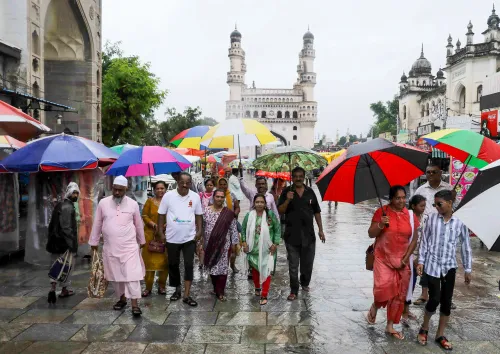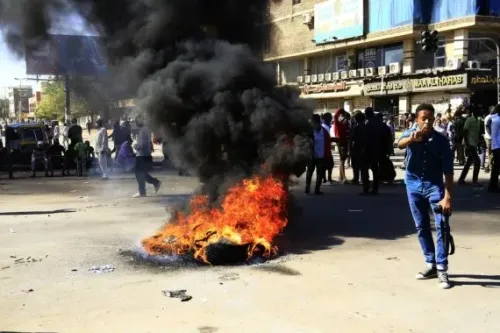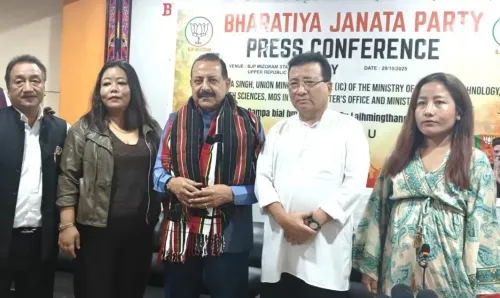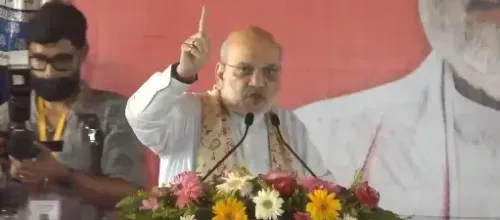Should Digvijaya Singh Call for Better Wages for Indore's Sanitation Workers?
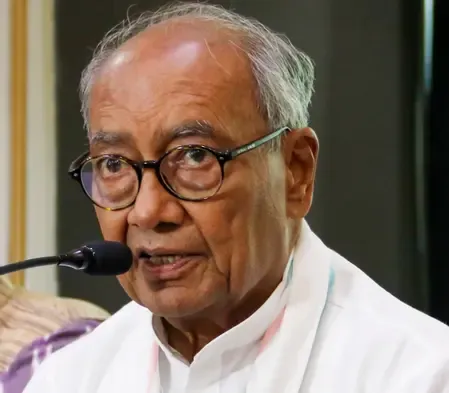
Synopsis
Key Takeaways
- Indore's sanitation workers play a critical role in the city's cleanliness.
- They are currently facing challenges with low wages and lack of job security.
- Digvijaya Singh is advocating for better pay and respect for these workers.
- Indore uses innovative waste management practices to maintain its cleanliness.
- The city has successfully implemented zero-waste zones in various areas.
Indore, July 19 (NationPress) As Indore proudly holds the title of the cleanest city in the nation for the eighth consecutive time, senior Congress leader and former Chief Minister of Madhya Pradesh, Digvijaya Singh, voiced his concerns regarding the sanitation workers, who are the true champions of this achievement, yet are struggling to get by on meager monthly salaries.
He emphasized that these diligent workers, who have contributed to Indore's cleanliness for eight years, are deprived of both respect and job security, making it challenging to afford their children’s school fees.
“These sanitation workers rise at 4 a.m. each day, regardless of the weather, to ensure Indore remains clean. Unfortunately, their monthly pay is a mere Rs 10,500, which barely covers their children’s higher secondary education,” Singh expressed on the social media platform X.
He put forth three fundamental demands from Indore's sanitation workers, appealing to Chief Minister Mohan Yadav and State Urban Development Minister Kailash Vijayvargiya to offer job security and elevate their salaries as they deserve better.
“Indore's cleanliness will hold true significance only when the lives of sanitation workers are also clean, secure, and respected. I urge the Chief Minister and Urban Administration Minister to fulfill these demands,” Singh stated.
The Congress leader noted that Indore's ongoing success in cleanliness is not mere chance.
It stems from a comprehensive strategy that includes effective waste management, advanced infrastructure, strong community involvement, and innovative services.
Unlike many cities, Indore has established a system where every household and business is motivated to separate waste into six specific categories: wet, dry, plastic, e-waste, sanitary, and hazardous.
Indore has emerged as a leader in waste management, with nearly all daily waste processed and transformed into beneficial resources.
A significant Gobar-Dhan plant operates in the city, managing up to 550–692 tonnes of wet waste daily to create bio-CNG and organic compost.
Indore has effectively converted various areas, including wards, markets, zoos, slums, and resident welfare associations (RWAs), into “zero-waste zones.”
Within these areas, practices like segregation, reuse, composting, and recycling are actively encouraged.
Moreover, the Indore district administration, along with the Municipal Corporation, has initiated numerous impactful campaigns, particularly behavioral change programs like “Bartan Banks” to discourage single-use plastics and “Jhola Banks” for promoting cloth bags.
Citizens, students, shopkeepers, and local organizations enthusiastically engage in cleanliness pledges and competitions.
To combat littering, the city employs CCTV surveillance and imposes fines.
The municipal corporation also enforces strict measures, including termination for non-compliant staff, underscoring their commitment to maintaining high standards.

